The STEPS programme is a non-profit outreach scheme funded by the Department of Education and Skills and is run by the professional body Engineers Ireland.
The concept of the programme is to promote engineering to children who might someday consider it for a future career.
During STEPS Engineers Week (5-11 March) engineering lessons will be taught in primary and secondary schools throughout Ireland and anyone who wishes to promote engineering as a career is welcome to take part.
The main aim is for those working in engineering careers to be a role model for kids who might have the right skillset for engineering, but may not realise the varied employment opportunities the sector can provide.
Women in engineering
Math, science and imagination – these are three skills which make for a great engineer. Like agriculture, engineering is a largely male-dominated space, both in Ireland and in the rest of the world.
In 2018, Engineers Ireland published a paper entitled Encouraging More Women to Become Engineers. In the paper, they share that, through data received from an internal survey of Engineers Ireland members, 86% of respondents believe that more should be done by parents, teachers and guidance counsellors to break down the “societal barriers to girls studying engineering-related topics”.
In 2021, Engineers Ireland created a new group called Women in Engineering. The group aims to help women build successful careers in engineering.
Group co-founder Georgina Molloy is a chartered civil and structural engineer with 20 years’ experience in design consultancy and contracting in Ireland, the UK and Australia.
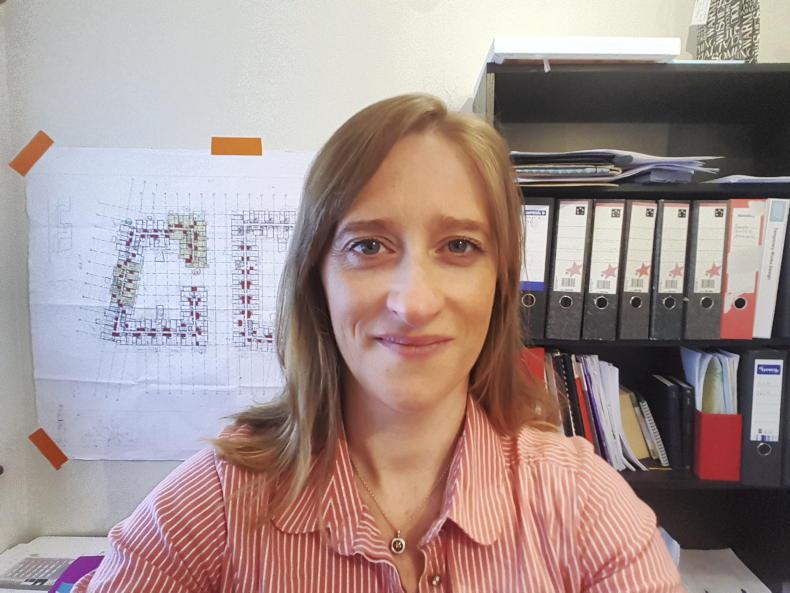
Georgina Molloy is co-founder of the professional group Women in Engineering, which aims to help women build successful engineering careers.
She says the main obstacle facing women in engineering is one of numbers.
“There simply are not enough of us,” she says. “Only 13% of Engineers Ireland members identify as women. This is only 3% higher than when I graduated 20 years ago.
“Organisations need to tackle the problem of diversity in the workplace and in recruitment. Generally, people are not consciously biased against female engineers, but unconscious bias does exist.
“Unconscious bias training would be a great help and organisations should consider providing it across all levels.”
Unconscious bias
Unconscious biases are social stereotypes about certain groups of people which have been formed without an individual even realising. Groups like women, ethnic minorities or underprivileged communities often face this form of bias in their professional lives.
Georgina says a great engineer is – above all else – a problem solver who is curious about how things work and wonders how they can make things work better.
“It’s really important for an engineer to be a good communicator and to love learning and upskilling, since the world of engineering is constantly evolving,” she explains.
“Increasingly, engineering is about caring for our planet and the people who live on it,” she adds. “It’s about solving the problems that – let’s face it – engineers (and humans) have created. Clean water, clean oceans, clean energy and transport and sustainable farming are just some problems that young women and men can work on if they pursue a career in engineering.”
To get an idea of the career routes to the world of engineering, Irish Country Living asked three women who work within the sector at Irish Water to share their stories.
Anna Brosnan
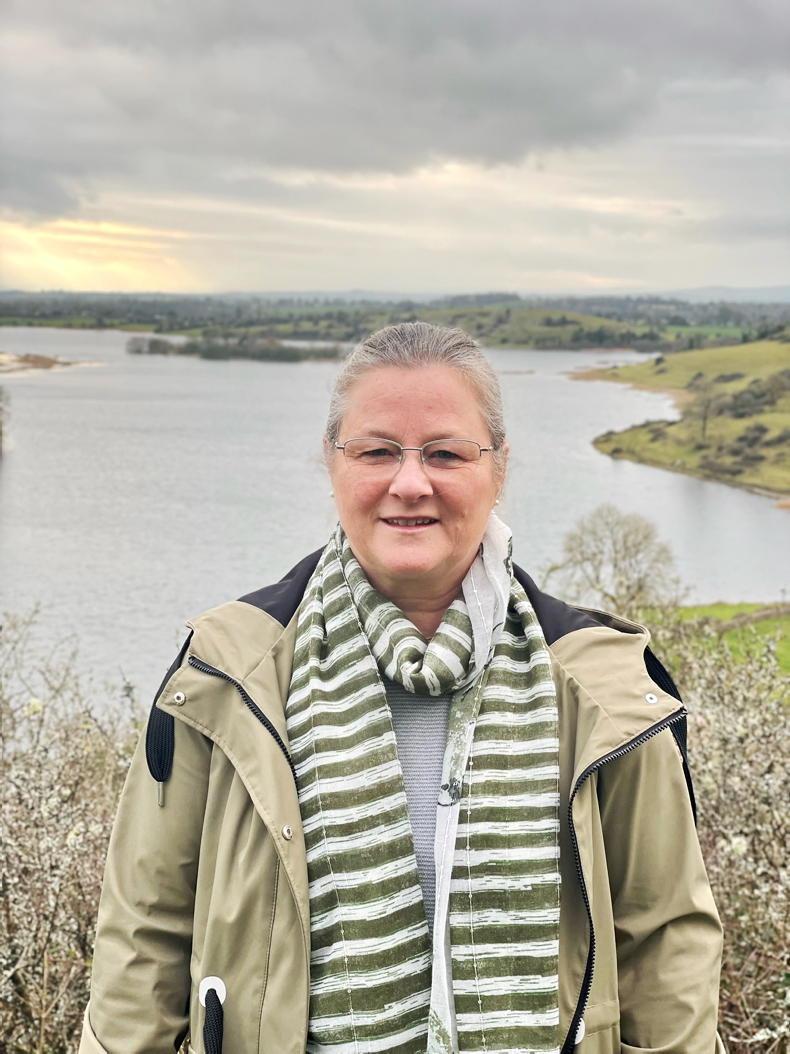
Anna Brosnan is a waste water engineer with Irish Water – she says as a child she loved playing with Lego.
“I knew that I wanted to do a professional degree and be a ‘something’ at the end of it. With my love of maths and science, engineering seemed like a good fit.”
Anna Brosnan is a Wexford native who now lives and works in Limerick. She is a waste-water engineer with Irish Water and gets great satisfaction from her work, which she says is driven by her interest in environmental protection.
“There is a great sense of achievement in working as an engineer. There are loads of opportunities and you can go in many directions,” she says. “The best advice is to find your niche, or what you’re good at, and really go for it. It’s important to enjoy what you’re working at, as life is short.”
After secondary school in Enniscorthy, Anna studied general engineering at Trinity College Dublin before specialising in civil engineering for the remainder of her college degree.
“I just loved the idea of building things; buildings, roads, bridges,” she says. “Looking back on my childhood, I had always loved Lego, as well. Civil engineering was definitely the right fit for me.”
Anna lived and worked in England for several years, where she specialised in construction and water works, before returning home to Ireland. In addition to her work with Irish Water, she is also involved in Limerick in Engineering and the Inspire Women events each year.
Denise McManus
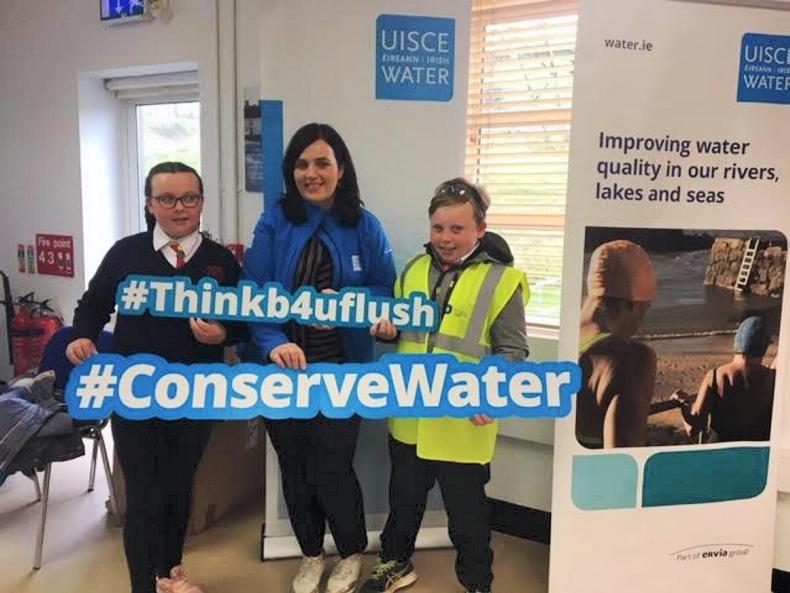
Denise McManus, here with her children, works as a regional wastewater networks planning specialist with Irish Water.
Denise lives on her family’s beef farm in Co Fermanagh, and she works with Irish Water as a regional wastewater networks planning specialist. She says the number-one skill she associates with being an engineer is having the ability to problem solve in a methodical way.
“I think that’s essentially what engineers do,” she says, “solve problems in a systematic and methodical way and plan for long-term as opposed to short-term fixes. Engineering is so broad and diverse – you could be working anywhere [in any industry], and I think the bottom line is we all solve problems and try to make things better all the time.”
She says the broad aspect of the role of an engineer might work against them when it comes to recruitment.
“People might ask, ‘What would I be doing [as an engineer]? Maybe we don’t sell it well enough – we need to be a bit smarter in raising the engineer’s profile.”
Denise received her degree in engineering in Belfast before directly entering into the workforce. She worked in Sligo, at first, while completing a part-time master’s degree in environmental management and she then joined Irish Water in 2014.
“I specifically work on waste water networks for the region I look after and we plan what investment is needed,” she explains. “My job is more office-based, but we would go and visit sites where we’re having issues.”
She’s currently busy working on plans for Galway, including a Drainage Area Plan which will facilitate social and economic development over the coming years.
“Like anything, with engineering you have to have an appetite for it,” she says. “And you need positive role models.”
Lisa Garrett
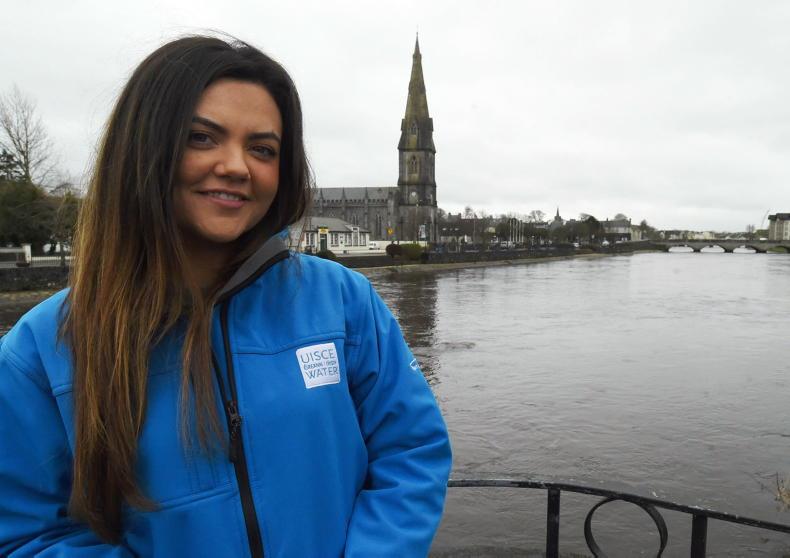
Lisa Garrett is an health, safety, environment and quality officer for Irish Water.
Lisa didn’t envision a career in the realm of engineering until she gained a bit of professional experience in the sector. She received her degree in business and IT and, while working in an administrative role in the UK, took a shining to the area of health and safety within engineering projects.
“I was carrying out administrative duties for the health and safety department,” she says, “but quickly realised I had a keen interest in the role and signed up for a degree in occupational health and safety in the UK.”
After working in the UK for several years, Lisa felt the pull to come home. Her current role is as a health, safety, environment and quality officer for Irish Water. She works to ensure the safety, health and welfare of workers on Irish Water projects which is a top priority for Irish Water.
“My role is in health and safety support for all the east midlands region, so I work within hundreds of sites,” she explains. “I deal with any accidents or incidents and I’m on site on a regular basis to ensure compliance with [safety protocols].”
She enjoys her job but says it was never something mentioned to her when she was finishing her Leaving Certification.
“I was oblivious of the construction industry,” she says.
“It’s a shame it’s not introduced quite a bit more [to students] as a career option. It’s a well-paid job, you get benefits back from it and you feel like you’re involved.”
Read more
Kepak and TU Dublin partnership looks at long-term culinary science innovation
Leaving Cert 2022: what is really best for Irish students?
The STEPS programme is a non-profit outreach scheme funded by the Department of Education and Skills and is run by the professional body Engineers Ireland.
The concept of the programme is to promote engineering to children who might someday consider it for a future career.
During STEPS Engineers Week (5-11 March) engineering lessons will be taught in primary and secondary schools throughout Ireland and anyone who wishes to promote engineering as a career is welcome to take part.
The main aim is for those working in engineering careers to be a role model for kids who might have the right skillset for engineering, but may not realise the varied employment opportunities the sector can provide.
Women in engineering
Math, science and imagination – these are three skills which make for a great engineer. Like agriculture, engineering is a largely male-dominated space, both in Ireland and in the rest of the world.
In 2018, Engineers Ireland published a paper entitled Encouraging More Women to Become Engineers. In the paper, they share that, through data received from an internal survey of Engineers Ireland members, 86% of respondents believe that more should be done by parents, teachers and guidance counsellors to break down the “societal barriers to girls studying engineering-related topics”.
In 2021, Engineers Ireland created a new group called Women in Engineering. The group aims to help women build successful careers in engineering.
Group co-founder Georgina Molloy is a chartered civil and structural engineer with 20 years’ experience in design consultancy and contracting in Ireland, the UK and Australia.

Georgina Molloy is co-founder of the professional group Women in Engineering, which aims to help women build successful engineering careers.
She says the main obstacle facing women in engineering is one of numbers.
“There simply are not enough of us,” she says. “Only 13% of Engineers Ireland members identify as women. This is only 3% higher than when I graduated 20 years ago.
“Organisations need to tackle the problem of diversity in the workplace and in recruitment. Generally, people are not consciously biased against female engineers, but unconscious bias does exist.
“Unconscious bias training would be a great help and organisations should consider providing it across all levels.”
Unconscious bias
Unconscious biases are social stereotypes about certain groups of people which have been formed without an individual even realising. Groups like women, ethnic minorities or underprivileged communities often face this form of bias in their professional lives.
Georgina says a great engineer is – above all else – a problem solver who is curious about how things work and wonders how they can make things work better.
“It’s really important for an engineer to be a good communicator and to love learning and upskilling, since the world of engineering is constantly evolving,” she explains.
“Increasingly, engineering is about caring for our planet and the people who live on it,” she adds. “It’s about solving the problems that – let’s face it – engineers (and humans) have created. Clean water, clean oceans, clean energy and transport and sustainable farming are just some problems that young women and men can work on if they pursue a career in engineering.”
To get an idea of the career routes to the world of engineering, Irish Country Living asked three women who work within the sector at Irish Water to share their stories.
Anna Brosnan

Anna Brosnan is a waste water engineer with Irish Water – she says as a child she loved playing with Lego.
“I knew that I wanted to do a professional degree and be a ‘something’ at the end of it. With my love of maths and science, engineering seemed like a good fit.”
Anna Brosnan is a Wexford native who now lives and works in Limerick. She is a waste-water engineer with Irish Water and gets great satisfaction from her work, which she says is driven by her interest in environmental protection.
“There is a great sense of achievement in working as an engineer. There are loads of opportunities and you can go in many directions,” she says. “The best advice is to find your niche, or what you’re good at, and really go for it. It’s important to enjoy what you’re working at, as life is short.”
After secondary school in Enniscorthy, Anna studied general engineering at Trinity College Dublin before specialising in civil engineering for the remainder of her college degree.
“I just loved the idea of building things; buildings, roads, bridges,” she says. “Looking back on my childhood, I had always loved Lego, as well. Civil engineering was definitely the right fit for me.”
Anna lived and worked in England for several years, where she specialised in construction and water works, before returning home to Ireland. In addition to her work with Irish Water, she is also involved in Limerick in Engineering and the Inspire Women events each year.
Denise McManus

Denise McManus, here with her children, works as a regional wastewater networks planning specialist with Irish Water.
Denise lives on her family’s beef farm in Co Fermanagh, and she works with Irish Water as a regional wastewater networks planning specialist. She says the number-one skill she associates with being an engineer is having the ability to problem solve in a methodical way.
“I think that’s essentially what engineers do,” she says, “solve problems in a systematic and methodical way and plan for long-term as opposed to short-term fixes. Engineering is so broad and diverse – you could be working anywhere [in any industry], and I think the bottom line is we all solve problems and try to make things better all the time.”
She says the broad aspect of the role of an engineer might work against them when it comes to recruitment.
“People might ask, ‘What would I be doing [as an engineer]? Maybe we don’t sell it well enough – we need to be a bit smarter in raising the engineer’s profile.”
Denise received her degree in engineering in Belfast before directly entering into the workforce. She worked in Sligo, at first, while completing a part-time master’s degree in environmental management and she then joined Irish Water in 2014.
“I specifically work on waste water networks for the region I look after and we plan what investment is needed,” she explains. “My job is more office-based, but we would go and visit sites where we’re having issues.”
She’s currently busy working on plans for Galway, including a Drainage Area Plan which will facilitate social and economic development over the coming years.
“Like anything, with engineering you have to have an appetite for it,” she says. “And you need positive role models.”
Lisa Garrett

Lisa Garrett is an health, safety, environment and quality officer for Irish Water.
Lisa didn’t envision a career in the realm of engineering until she gained a bit of professional experience in the sector. She received her degree in business and IT and, while working in an administrative role in the UK, took a shining to the area of health and safety within engineering projects.
“I was carrying out administrative duties for the health and safety department,” she says, “but quickly realised I had a keen interest in the role and signed up for a degree in occupational health and safety in the UK.”
After working in the UK for several years, Lisa felt the pull to come home. Her current role is as a health, safety, environment and quality officer for Irish Water. She works to ensure the safety, health and welfare of workers on Irish Water projects which is a top priority for Irish Water.
“My role is in health and safety support for all the east midlands region, so I work within hundreds of sites,” she explains. “I deal with any accidents or incidents and I’m on site on a regular basis to ensure compliance with [safety protocols].”
She enjoys her job but says it was never something mentioned to her when she was finishing her Leaving Certification.
“I was oblivious of the construction industry,” she says.
“It’s a shame it’s not introduced quite a bit more [to students] as a career option. It’s a well-paid job, you get benefits back from it and you feel like you’re involved.”
Read more
Kepak and TU Dublin partnership looks at long-term culinary science innovation
Leaving Cert 2022: what is really best for Irish students?









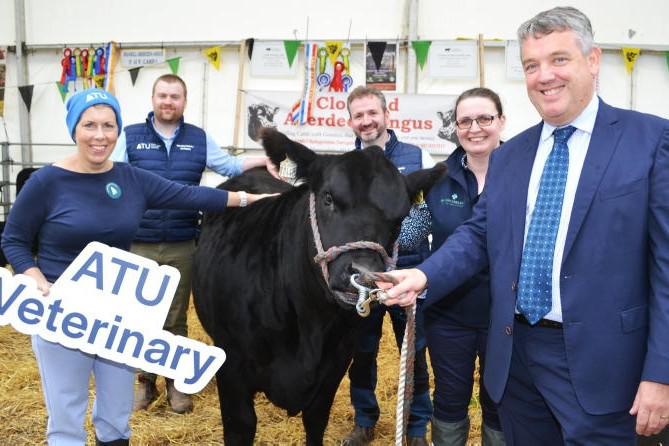
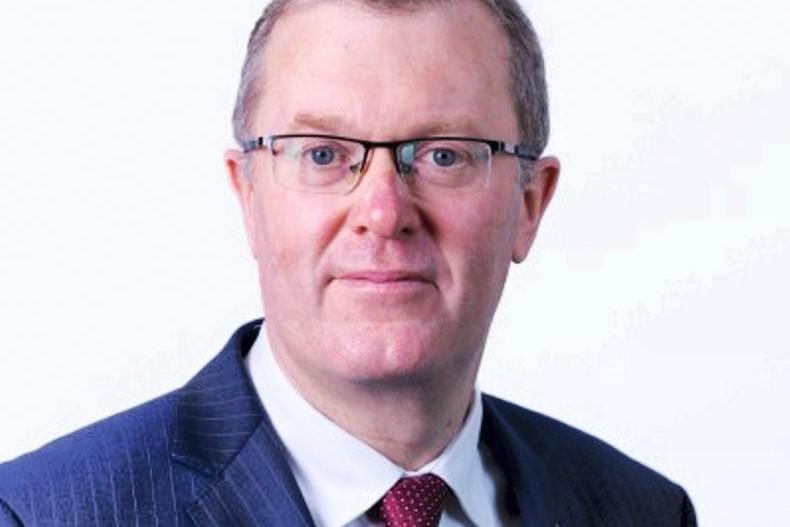
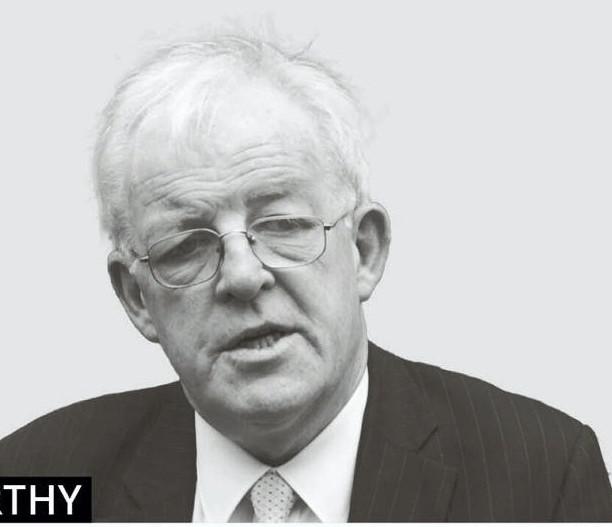
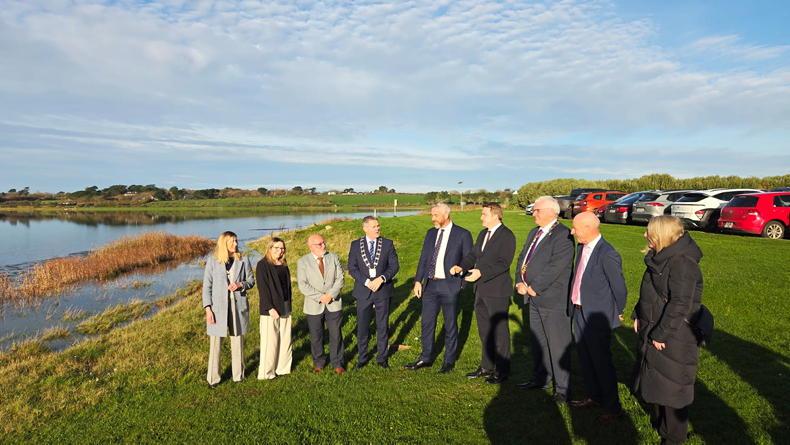
SHARING OPTIONS